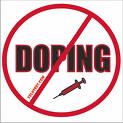
21/07/2008 - Press release

In the current setting of the imminent Peking Olympic Games, the fight against doping takes on particular relevance and lets us tackle concepts like the limits of the human body, physical resistance, sport ethics and doping as a means to obtain eternal fame and glory, an idea that arose in Greece over 2000 years ago.
With this objective, next Tuesday 22 July at 14:30, in the framework of the Euroscience Open Forum (ESOF 2008), the session ‘Doping and society: towards the perfect human machine?’ will be held, organised by Dr Jordi Segura, director of the Anti-doping Laboratory of the Municipal Institute of Medical Research (IMIM-Hospital del Mar) in Barcelona and member of the Medical Commission Games Group of the International Olympic Committee (IOC). Internationally renowned experts will also be present such as Dr Alain Garnier, medical director of the World Anti-Doping Agency (WADA), Dr. Franchek Drobnic, Physiology Department, High Performance Centre (CAR), Dr Michele Verroken, director of the Sporting Integrity consulting agency based in London and former manager of UK Sports, Xavier O’Callagan, former handball player for FC Barcelona and current manager of the handball department of FC Barcelona and Dr Francesco Botré, former president of the World Association of Anti-Doping Scientists (WAADS) i scientific director of the Anti-Doping Laboratory in Rome. Mr Josep Guardiola will also participate through a pre-recorded statement, a former player on FC Barcelona and the current coach of its 1st team.
According to Jordi Segura ‘Doping is dangerous to the ethics of sport itself and to the health of athletes. As fans, we must get used to not expecting stratospheric records so often and enjoy fairer and more balanced sport’. Despite the fact that anti-doping laboratories estimate that only between 1 and 2 % of athletes use drugs, the high risk of this practice to athletes’ health is clear, which in some cases have even led to death. We must remember though that the athlete is almost never the only guilty party, since modern doping takes place in an organised setting that incites and provides athletes with the illegal means necessary.
In recent years, the scenario has changed from a fight against classic doping where the substances used -stimulants (amphetamines, etc), narcotics (methadone, morphine, etc), anabolic steroids (testosterone, Estanozolol, etc)- were easily detectable, to doping based on stimulation of the growth hormone or the supplying of erythropoietin, products generated by the body itself, a fact that complicates the analysis and interpretation process of the results. Furthermore, in the near future, specialists forecast that new and increasingly sophisticated methods will have to be dealt with, such as genetic doping.
Society must be aware that media, economic and social prestige of being the winner of important competitions will continue stimulating the temptation to employ illegal practices to obtain this goal and, therefore, it is very difficult to definitively eliminate the problem, above all in individual sports where results depend on the strength and resistance of one person. However, it does seem possible to control the situation within certain limits that allow faith in clean sport practices to be maintained.
All of these issues will be debated at the session on the 22nd, with the aim of providing a general overview of the fight against doping from different viewpoints: scientific, institutional, ethical and the viewpoint of the athletes themselves. Special emphasis will also be placed on the future development of anti-doping control from the perspective of scientific laboratories, in the context of clean play and health protection.
© Institut Hospital del Mar
d'Investigacions MèdiquesLegal Notice and Privacy Policy | Cookie Policy | Site Index | Accessibility | Find Us | Contact